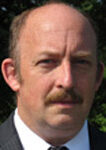A protocol is a set of written guidelines for emergency medical services (EMS) staff that determine what treatments should be given to a patient. They are in fact written orders from a physician to the EMS staff. Unlike prescriptions, which are written by a physician for a specific patient, protocols are written to cover all similar patients diagnosed as suffering from the same specific symptoms. Another difference between protocols and prescriptions is that prescriptions are almost always written by a physician in the presence of, and/or immediately after examining, the individual patient for whom the prescription is written, while protocols not only are written in advance, they also in many cases are written by committees of various stakeholders. These stakeholder committees vary in composition, and name, across the country, but typically include representatives from the EMS services, hospitals, and other interests.The establishment of a system of national protocols in this field, some experts say, would have a leveling effect by standardizing the medical care provided by EMS agencies nationwide. A paramedic from one state would be able to operate effectively in a disaster area within another state – but of greater importance is the fact that, when that paramedic is paired with a local paramedic on a local ambulance, they both would be operating from the same rule book.If and When AvailableMany states have in fact established statewide EMS protocols. However, a state protocol often is considered to be just the starting point for local protocols. Regional EMS systems and/or local agencies often are allowed to write their own local protocols. The EMS field is unique among the nation’s emergency-responder communities in that a large component of the national EMS vehicle fleet and equipment inventory is owned by private businesses. The fact is that, if the fiscal well being of the local agency is not taken into account, the agency may be driven out of business Moreover, a high percentage of the remainder are the property of state and local agencies, many of which are inadequately funded. Protocols are therefore sometimes tailored to the fiscal needs of the local political jurisdiction, or of the jurisdiction’s EMS agencies. One result of this economic reality is that, to ease the local financial burden, a specific medication or equipment may be listed “as available” or, possibly, not even considered for inclusion in the protocol. At first glance this regrettable situation seems very much to be “money trumping science,” but the fact is that, if the fiscal well being of the local agency is not taken into account, the agency may be driven out of business and be able to provide no care at all. Another real-life factor that must be considered is that locally developed protocols may be written in ways that either favor or disadvantage certain agencies. On the other hand, when protocols are written nationally, purchase opportunities climb to a level where they can affect sales volume in the medication as well as medical equipment market, and that possibility could invite corruption on an entirely different scale.States’ Rights and Practical ExamplesThere are numerous state-to-state differences – some minor, but others relatively important – in the protocols directing what emergency medical technicians (EMTs) and paramedics may or may not do. These differences arise primarily because different regulatory bodies have written the rules for each individual state. In theory, this problem can be easily resolved simply by requiring the state regulatory bodies to adjust their state regulations to match those required by the national protocols. It should be fully recognized, though – in advance – that such a major change would require a massive training effort to bring all EMTs and paramedics throughout the entire country to the same level of capability. A potentially major stumbling block in the way of any effort to initiate a national EMS protocol system would be the issue of a state’s right to license and regulate medical care. EMS professionals provide such care under a rule called delegated practice – which allows paramedics to practice medicine under a physician’s license. The practice of medicine is currently regulated at the state level including the care rendered by EMS professionals, and it would require a major change in the regulatory strcture to move the regulations to the federal level in the face of this precedent. There already are many examples in place that could be used as guides for the development of national EMS protocols. The American Heart Association (AHA), for example, has developed several operational guidelines, including the rules for cardiopulmonary resuscitation (CPR) and advanced cardiac life support (ALCS). These two guidelines serve as the basis for care given by medical providers, including those in the EMS community, in cardiac emergencies. In addition, there are several other national organizations in the medical field that, although they do not write protocols per se, do develop and promulgate position papers that are used to educate and influence the state committees that write and authorize the protocols.

Joseph Cahill
Joseph Cahill is the director of medicolegal investigations for the Massachusetts Office of the Chief Medical Examiner. He previously served as exercise and training coordinator for the Massachusetts Department of Public Health and as emergency planner in the Westchester County (N.Y.) Office of Emergency Management. He also served for five years as citywide advanced life support (ALS) coordinator for the FDNY – Bureau of EMS. Before that, he was the department’s Division 6 ALS coordinator, covering the South Bronx and Harlem. He also served on the faculty of the Westchester County Community College’s paramedic program and has been a frequent guest lecturer for the U.S. Secret Service, the FDNY EMS Academy, and Montefiore Hospital.
- Joseph Cahillhttps://www.domprep.com/author/joseph-cahill
- Joseph Cahillhttps://www.domprep.com/author/joseph-cahill
- Joseph Cahillhttps://www.domprep.com/author/joseph-cahill
- Joseph Cahillhttps://www.domprep.com/author/joseph-cahill






